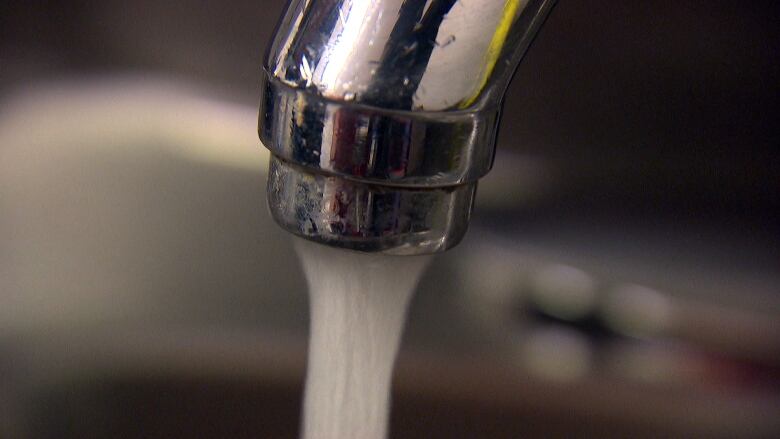Winter road conditions pose challenge to Liberals' timetable for lifting boil water advisories: minister

Fort Severn First Nation in northern Ontario declared a state of emergency this week after the pump that supplies its water failed — and warmer-than-usual winter conditions may leave it and some other remote First Nations without safe water past the government’s deadline for lifting all long-term boil water advisories.
Indigenous Services Minister Marc Miller said that the condition of winter roads poses an obstacle to meeting the March 2021 deadline, according to an audio recording shared with CBC News from a private meeting on Feb. 15 with Mohawk representatives in Tyendinaga, Ont.
“How many do I have left? Eighty boil water advisories that I have to get rid of by the end of March 2021,” Miller said during the private meeting, which originally was arranged to discuss demonstrations in support of Wet’suwet’en hereditary chiefs in northern B.C. who oppose the construction of the Coastal GasLink natural gas pipeline on their territory.
“Depending on the conditions of the winter roads this winter, it will still be a challenge.” Miller added.
Winter roads unpredictable
The Liberals promised to end First Nation long-term boil water advisories by next March during the 2015 federal election campaign.
Fluctuating temperatures have so far kept heavy traffic off the winter road into Fort Severn First Nation, population 552, located 853 kilometres north of Thunder Bay, Ont. That played a role in the band’s decision to declare a state of emergency Wednesday over a water shortage.
Chief Paul Burke said the winter road is only open to light traffic, so the community hasn’t been able to source supplies to fix its aging water treatment plant after a pump failed this week.
“While our road was being constructed, our crew was telling us that this is the hardest year yet,” Chief Burke said. “Their machines are breaking through every day.”
Burke said the heavy vehicles his fly-in community depends on for supplies keep falling through the ice into creeks or muskeg.
“We need to re-align our winter road,” he said. “We need to follow a route that has solid ground.”
Water shortage led to school closures
The state of the winter road has left the community scrambling to deal with a major water shortage, said Burke, who woke up Wednesday with no water in his home.
An air shipment of 40,000 litres of water was supposed to come on Wednesday. Burke said only 3,000 litres arrived.
Whenever the community receives its full shipment, it will only amount to about 1.5 litres per person, he said.
The community has been forced to close its school and to put restrictions on the use of its health clinic. Residents also can’t do laundry and dishes while water is being pumped in from the Severn River as an emergency measure.
The only other way to bring equipment into the First Nation is by plane. Burke said that’s much more expensive.
“Everybody’s purses are tight these days,” Burke said.
As an example, Burke said it cost the community about $45,000 to fly two planes into the community to deliver 9,000 litres of diesel fuel last year, and that price did not include the cost of the diesel itself.
‘Shouldn’t be a debate over clean water’
The cost of living has risen in Fort Severn due to its limited access to a winter road.
Right now, Burke said, gasoline there costs $4.20 per litre and the community is still waiting for building supplies, diesel fuel and other critical items.
The winter road season lasted for three weeks last year, Burke said, and the community faced another problem through its summer supply route.
Burke said Fort Severn couldn’t get any supplies delivered by ship because the ice didn’t recede until August. That meant a crane needed for a solar energy project wasn’t delivered, among other supplies.
Fort Severn is one of 10 remote communities without all-weather roads connecting them to the south that are currently under long-term boil water advisories, according to Indigenous Services Canada. Aside from Black Lake in northern Saskatchewan, the majority are in northeastern Ontario: Bearskin Lake, Muskrat Dam Lake, Sandy Lake, Wawakapewin, Nibinamik, Neskantaga, Marten Falls and Eabametoong.
Burke said he hopes the water emergency will be resolved next week.
“Let’s not wait for that moment to say we have to do something. Let’s start thinking ahead.” he said.
“There shouldn’t be a debate over clean water.”



